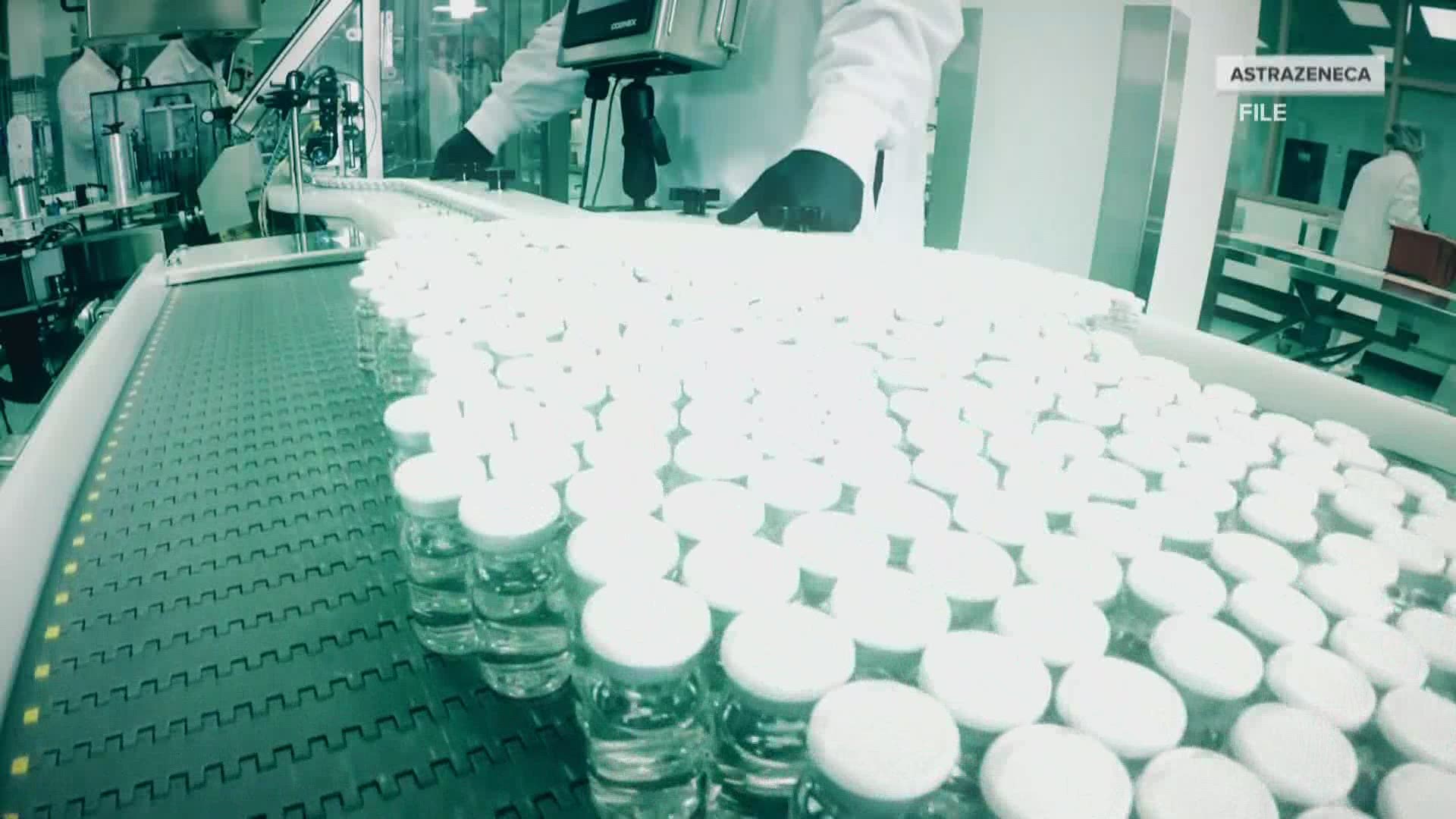MAINE, USA — Pfizer is the first drug manufacturer to suggest its vaccine is highly effective at preventing the deadly virus.
The news, announced Monday morning, is a shot in the arm for public health officials.
After nine months of life in the middle of a pandemic, hope may be on the horizon.
"I was doing a happy dance this morning," Dr. Dora Mills, Senior Vice President of Maine Health, said. "It was great news to wake up to."
Pfizer, one of the nation's top drug manufacturers, announced Monday it's phase-3 drug trial data suggests its vaccine is highly effective at preventing COVID-19.
"To see the preliminary data might be 90 percent is very exciting."
Dr. Mills has been following the clinical trials for all six vaccines currently in the pipeline.
She says health officials were hoping for a 50 to 60 percent efficacy rate, similar to the flu vaccine, but the latest results from Pfizer are more than they could have hoped for.
"If it stays above a 90 percent efficacy that is very exciting and could be more of just an extra layer of safety."
Especially at a time when Maine—along with other states—is seeing day after day of record numbers of new COVID-19 cases.
"This vaccine may help to shorten the time this surge occurs and help really save lives and that's what it is about saving lives and saving health," Dr. Mills said.
Dr. Mills says in just a few weeks, they could have the vaccine available to inoculate high-risk groups in Maine, health care workers on the front lines, first responders, and residents and staff at long term health facilities. Everyone else could be vaccinated within the first few months of next year on a voluntary basis.
"I certainly wouldn't want to be promoting a vaccine that I myself would not feel safe getting it," Dr. Mills said. "These are career scientists who are running this process. They are not interested in cutting corners or putting their career on the line."
During the coronavirus briefing on Monday, Maine CDC Director Dr. Shah shared his cautiously optimistic thoughts on the vaccine.
"We need to see all the data," Dr. Shah said. "We should not be conducting scientific policy through press releases."
"Based on what I’ve read based on what was made publicly available, it’s encouraging, but we need to see all of it," he continued. "We’ve got to make sure we all have insight into the other data that might exist that wasn’t put forth today. Once we’ve got that complete picture, then we’ll be able to really analyze it. What was released was encouraging. It sounds favorable. But this is the beginning of the process, by no means the end of the analysis."
Dr. Shah says the Maine CDC and the Gov. Janet Mills administration aren't waiting for the authorization or approval of the vaccine, if it does, in order to plan.
The vaccine requires ultra-cold storage, but it can be taken out of cold storage for a number of days during the administration process. Dr. Shah says they have been briefed by the U.S. CDC about the Pfizer vaccine, and they say it's the type of vaccine where you want to bring the people to the vaccine, rather the vaccine to the people.
Dr. Shah says they are working to expand the scope of their ultra-cold storage and the Maine CDC has already talked to various hospitals in Maine that have such facilities, and they're also working to acquire additional freezers to bolster their internal capacity to store the vaccine.
There are concerns with the rural areas of the state, in terms of the vaccine distribution, so the Maine CDC is working to utilize mobile efforts as well.
"It is definitely a logistics challenge," Shah says, "but this is what we do at the Maine CDC and at DHHS—we take tough logistics challenges and we take them head-on."
Dr. Mills says this vaccine may not be the panacea everyone was hoping for but if the data holds true, it could be pretty close.
"It's good to have some good news a little, a light at the end of the tunnel."

